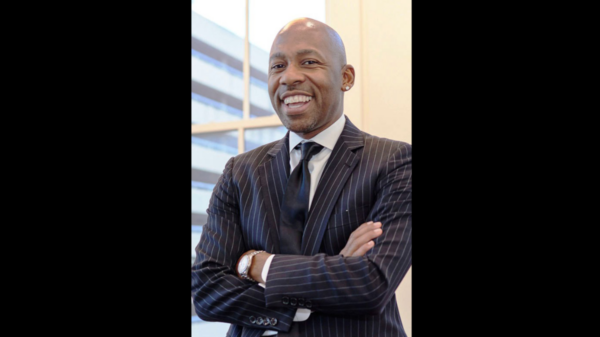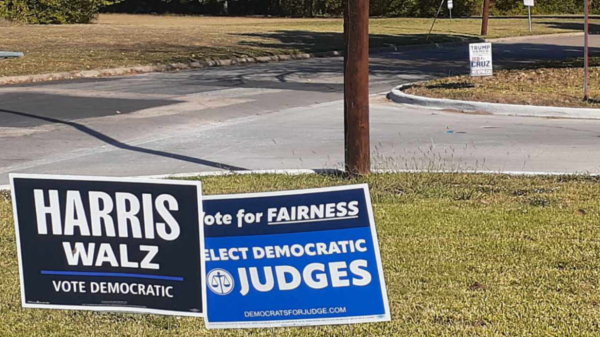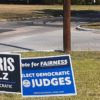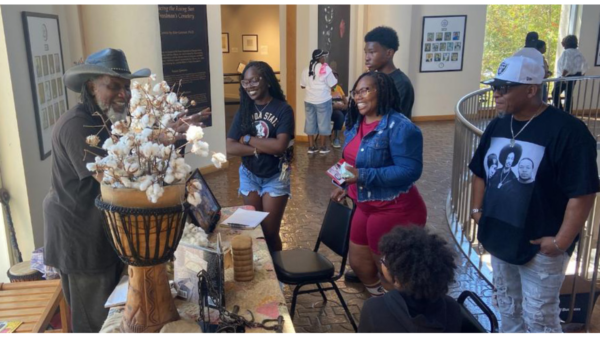
Credit: LinkedIn
By Norma Adams-Wade
This is Part II of Diane Ragsdale’s story – detailing visions of police reform and enhanced community services in her future. Ragsdale is founder of the original nonprofit South Dallas/ Fair Park Innercity Community Development Corporation. (ICDC).
Part I explored her professional achievements and creation of ICDC from which she retired as managing director in early April after 35 years at the helm. The South Dallas native and graduate of Madison High School and Dallas Baptist University here, with studies at Texas Woman’s University, also is a noted community activist and former Dallas City Council member who was Dallas Deputy Mayor pro-Tem.
In several lengthy conversations with Ragsdale over a few days, we discussed many highlights of her life: her youth; parents and family; entering public service as an activist and community organizer; proud moments and frustrations involved; why she is retiring now and that her “what’s next” involves volunteering as an ICDC adviser while volunteering as organizer of policy and advocacy operations – a new trend emerging across the country in urban areas.
We also discussed her passionate take on a wide swath of current events, particularly those that impact African-American life and communities – police/community relations, and benefits that contribute to quality of life: jobs, home ownership, transportation, access to food, education, public safety, retail complexes, community services, and so on.

Credit: LinkedIn
Venus Cobb will succeed Ragsdale at ICDC using the title executive director whereas Ragsdale preferred managing director. Cobb is no stranger to ICDC, the South Dallas community, and managing huge amounts of federal funding. She is a 30-year veteran in community affairs and has worked with the City of Dallas Office of Economic Development for more than a decade.
She has collaborated with community partnerships – including with ICDC — and was a Dallas Black Chamber of Commerce board member. She grew up in Chicago and Gary, Indiana, graduated from Purdue University in Indiana and the University of Colorado at Denver, and has lived in Dallas about 11 years. Cobb said she seeks to take Ragsdale’s exemplary achievements with ICDC even higher.
“First, I seek to enhance existing programs, and then development comprehensive new ones,” said Cobb, who spent her youth in the midst of the economic decline of northeastern urban cities including Gary, Indiana where she grew up. “Most importantly, we would assist residents …to accomplish economic mobility” – the ability to improve their income and quality of life. Filling Ragsdale’s shoes is a challenge she assumes with respect, she said.
“I feel accountable and responsible to continue her legacy, which is to address economic disparity in our community,” Cobb said. “I am a passionate leader and look forward to intentionally engaging community residents and partners in our (ICDC) efforts.”
Ragsdale said her own new role, through a volunteer policy and advocacy committee, will be to put such issues as poverty and police abuse under a more intense microscope to find solutions. She gave a detailed synopsis of the historical creation of police – largely to track down and return enslaved Africans who had escaped the plantation – and how and why police and people of color clash so drastically today.
She recounted a childhood of watching family and community role models as they reacted to racial injustices all around them. Media profiles of Ragsdale have well documented local civil rights warriors who influenced her and her late sister Charlotte Ragsdale who also was a community activist. One of her less talked about positive influences was her mother, Lula Simpson Ragsdale, one of the few pioneer Black licensed vocational nurses, (LVNs) at the early Parkland Hospital in the 1950s. Her mother’s career inspired Ragsdale to become a Registered Nurse (RN) and to continue that career even as she served on the Council. Born in unincorporated Gause, Milam County, near Cameron Texas, Ragsdale’s mother regularly talked to her daughters about Jim Crow disadvantages that restricted her own youth. Ragsdale’s father, Cottrell Ragsdale, was born in Jacksonville, Texas and became a longtime gas company general maintenance worker.

Credit: Dallas Public Library
Ragsdale spoke intensely about her years of dealing with police-community conflicts as both a street protestor and an elected official. She listed nearly a dozen hard-fought police reforms that have failed, including new police chiefs, de-escalation training, and civilian review boards. Then she shared her world vision “to dismantle the existing system and create a new system of public safety;” to redirect police funding to community and social services that address underlying causes and potentially blot out crime. Decades of previous attempted reforms were not funded. She insists that such a new system is possible and that it would eliminate failures of the current system that has produced the litany of unjust killings, broken-hearted families, and schism between police departments and communities.
“What is so clear is that the strategies we have used throughout the years have not worked,” she stressed. “The Diane Ragsdale of the world, throughout the country, need to acknowledge that. What we have done has not worked. That’s step #1: Y’all, that ain’t working!! When we look at all the recent killings of unarmed Black men and women, you’ve got to conclude that what exists now is not fixable!”
Dallas surely will hear more such planning details from Ragsdale as she moves forward with her policy and advocacy visions for the future – just as we heard and saw when she envisioned the now real and relevant ICDC. Ever forward.
Norma Adams-Wade, is a proud Dallas native, University of Texas at Austin journalism graduate and retired Dallas Morning News senior staff writer. She is a founder of the National Association of Black Journalists and was its first southwest regional director. She became The News’ first Black full-time reporter in 1974. norma_adams_wade@yahoo.com
FROM DIANE RAGSDALE
“You cannot reform a system that has a foundation based on white supremacy…You can talk all day about addressing community violence, but … (the budget goes elsewhere). So, to address the question ‘who do you call when you need the police at your house?’ Address the causes with funding and you may not have the
problem.”
“Our goal is not to just put different complexions at the table, but to change the policies of that institution.”
“In the past we had affirmative action. Now we have the push for equity and diversity. Affirmative action did provide some help…but that model did not serve the masses…When you say health care should be affordable to everyone, that’s policy.”
“If we continue to attempt reforms, 40 years from now we will have the same issues. We cannot reform. We have to dismantle existing systems and create new ones.”









You must be logged in to post a comment Login